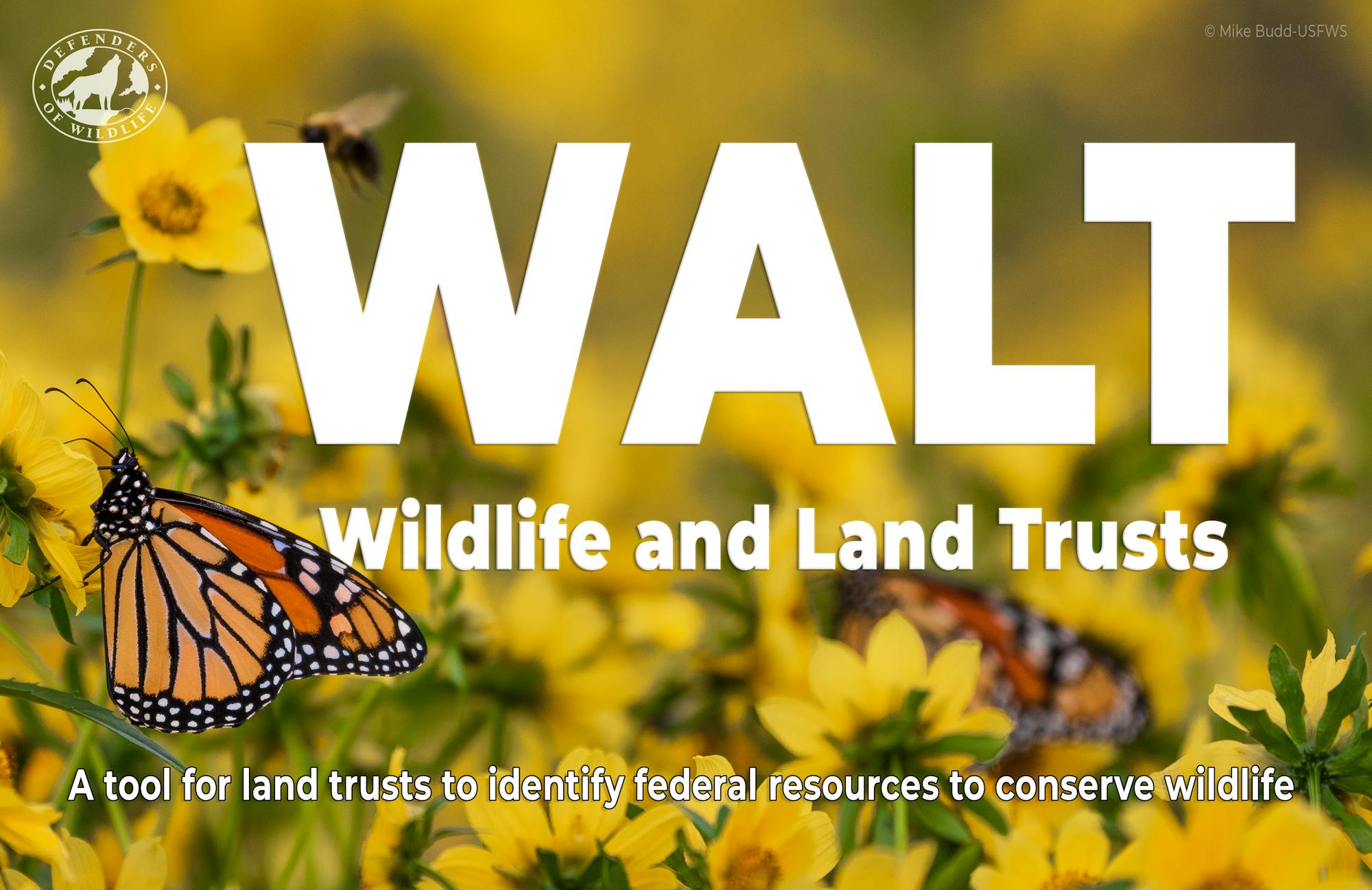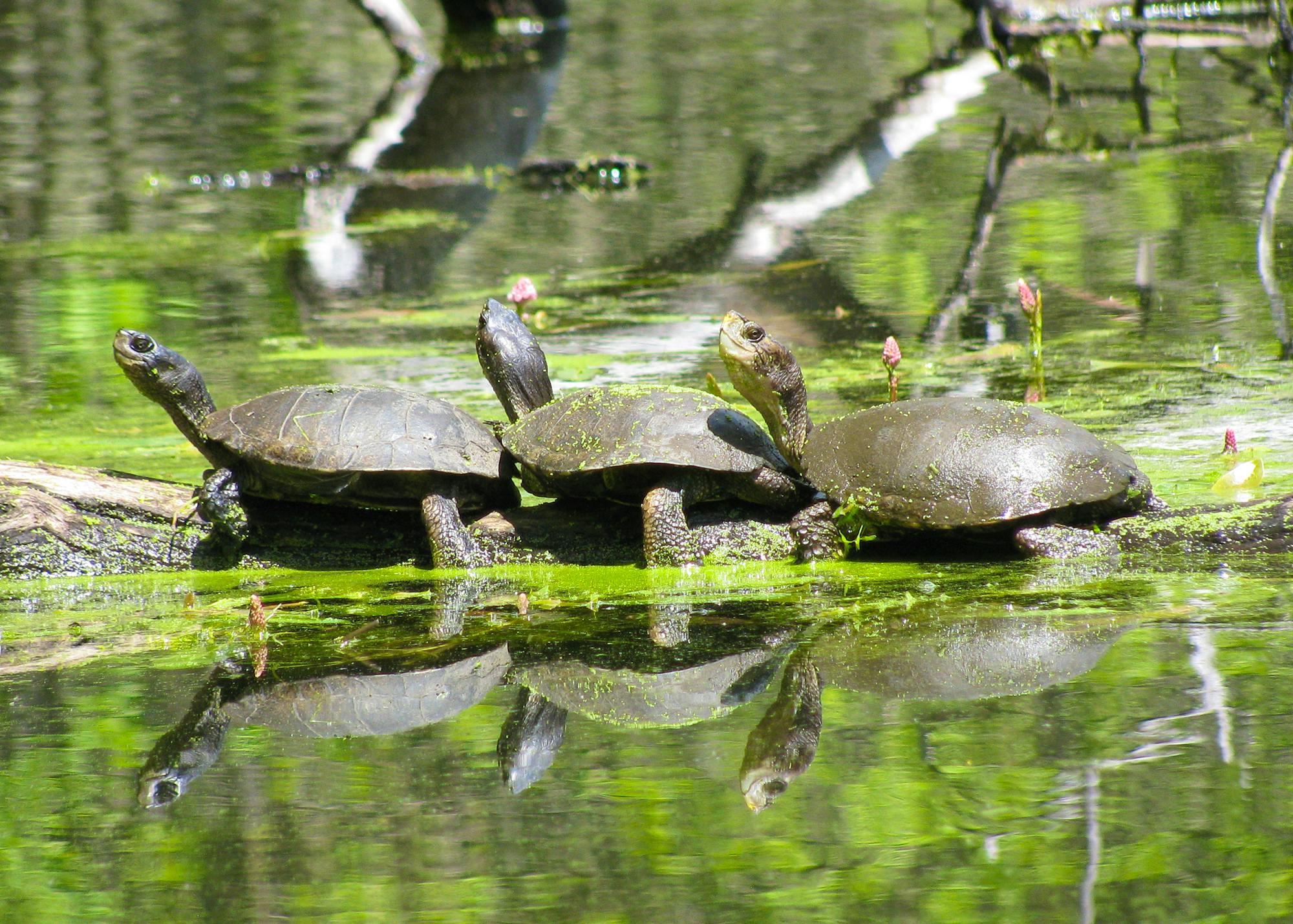As stewards of approximately 61 million acres of private land, land trusts are well positioned to help combat the joint biodiversity and climate crises. Land trusts are nonprofit organizations that work to permanently conserve land through acquisition or by working with willing landowners to put a conservation easement on their land. Additionally, with the intent for land conservation to be long-lasting, land trusts restore and manage land once it’s been conserved to make sure the ecosystems are healthy and suitable for species.
Defenders’ private lands program recognized a need for land trusts to easily navigate the multitude of federal financial and technical assistance programs available to them. After years of partnering with land trusts to explore ways to facilitate greater engagement with federal agencies, Defenders unveiled WALT: Wildlife and Land Trusts in early September at the Land Trust Alliance annual conference. This interactive tool empowers land trusts to conserve more land by making accessible the necessary information for funding and technical assistance by matching federal assistance programs to their unique wildlife conservation priorities.
Mary Pfaffko, Defenders’ senior policy analyst for private lands, led the development of WALT in collaboration with Defenders’ Center for Conservation Innovation. While around 70% of the continental United States is privately owned, and around two-thirds of federally endangered and threatened species are supported by those lands, what happens with the land matters for the future of wildlife.
While at this year’s annual conference, I had the privilege of learning about a success story from the land trust, Friends of the Columbia Gorge, or Friends. As a result of both state and federal partnerships, this land trust now owns and stewards a 65-acre preserve called Turtle Haven located in Washington state.
The Washington Department of Fish and Wildlife (WDFW) reached out to Friends suggesting it buy a specific piece of property because it had strong potential as habitat for the endangered western pond turtle. The property is ample with ponds and streams, as well as grassy uplands. WDFW encouraged Friends to apply for funding from the U.S. Fish & Wildlife Service Partners for Fish and Wildlife Program to restore the newly acquired property for the recovery of the western pond turtle.
While it took two rounds of applications, Friends said the process was well-worth the resulting funds. The funding was used to improve upland habitat by removing thick non-native blackberry thickets and to reduce the main predator of the western pond turtle, non-native American bullfrogs. Sara Woods, Stewardship Manager with Friends, finds that the best part of the federal funding is the five-year period it provided to complete the project. So far, captive-reared western pond turtles have been reintroduced to this habitat and appear to be sustaining their population successfully.
It is our hope that with the help of WALT land trusts will create more of these success stories. WALT is free and user friendly with a simple two-step “How to Use the Tool” guide on the left-hand column of the homepage. The top of the homepage is organized by tabs for specific conservation priorities, including land acquisition, conservation easements, land retirement, and restoration and management practices. Under each program is information tailored specifically for land trusts, including the purpose of the program, eligibility, match requirements, and how to apply with links to more information.
WALT seeks to build partnerships across the land trust community, from land trusts, landowners, and community partners to agencies. WALT brings federal assistance programs to one place to ensure the land trust community can feel confident with the variety of information, tools, and resources needed to best conserve biodiversity on private lands.








